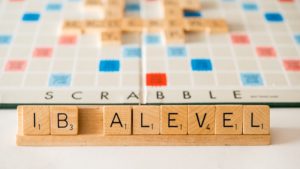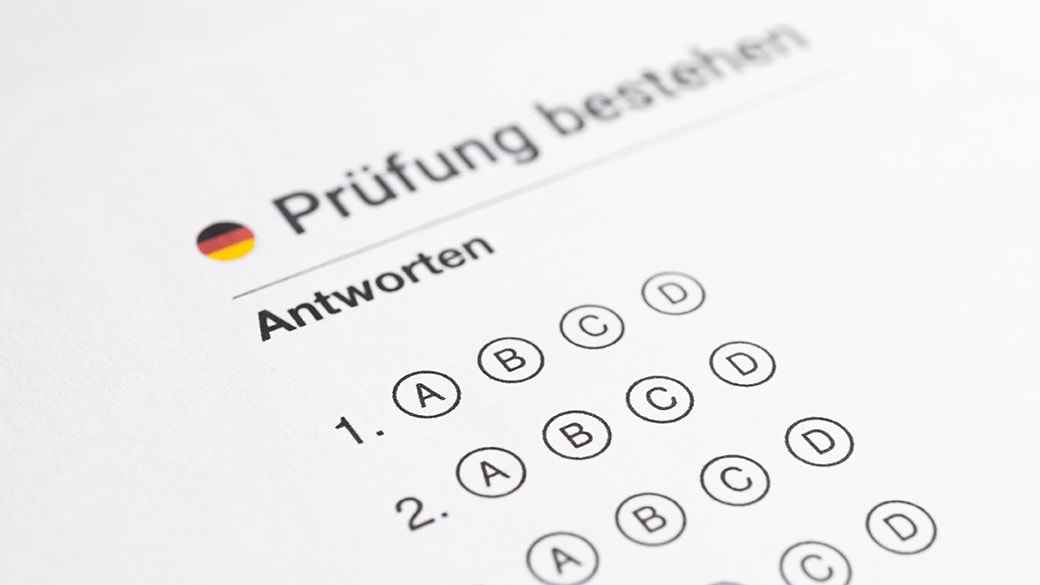In this Blog, Maggie discusses the difficulties of moving from the I/GCSE to the IB or A-Level German course. Lots of students find the switch quite challenging but with some tricks and tips students can make a smooth (and successful) transition.
I often see students doing very well at their GCSE or IGCSE German exam. They love the German language, they achieve great results and manage to get through the three year course without any difficulties. They decide that they love German, they find it easy and interesting and then opt for the German IB course.
Lots of students thought they were doing great and had no trouble in understanding the GCSE or IGCSE coursework. But then, when September comes, the new school year starts and the IB or A-level course unfolds. Plenty of students manage to get along with the course material from the start. They recognise the troubles of learning the vast amount of new vocabulary and grammar getting thrown at them but overall, they get along with the course material. Others, however, get the feeling that the IB or A-level German course is completely different from what they thought it would.
It appears to them that the requirements of the Sixth Form German course seem to be totally different from what they knew from their GCSE/IGCSE course and they simply can't cope with the amount of new words, phrases and grammar that have to be learned. Students who used to love their German course start to struggle and slowly lose interest.
As a tutor with a lot of experience teaching and tutoring the IB and A-level course, I can say with confidence that it does not have to be this way.
If you decided to opt for the German IB or A-level course, I can assure you that you can do great in this course if you follow a few simple steps:
Think ahead
I suggest starting the IB and A-level course early. Spend a few weeks before the first day back at school revising some key GCSE and IGCSE vocabulary and grammar. If you manage to get some grammar exercises done before the start of the new school year, you will feel much more confident when you encounter new topics. Also, when you manage to revise key grammar topics before the start of the new school year, you will not have to spend any time revising these together with the new and much harder topics at the beginning of the new school year.
Get into a routine
Try to get into the habit of reading and listening to as many German sources as you can. Make it a habit to read the German news on a daily basis. Even if it is just for a few minutes every day, the time you spend being in touch with the German language will add up and small bits and bobs here and there will make a big difference. You can read various newspapers for free online. There are plenty to choose from. Daily newspapers such as
www.faz.net,
www.diesueddeustche.de and
www.diewelt.de offer a wide range of topics to choose from. Find an area that you are interested in and start building your vocabulary.
You could also subscribe to a German weekly magazine and work through a whole article within a week.
www.derspiegel.de or
www.neon.de are good magazines to flick through regularly. There are plenty more but these ones cover political as well as youth related topics.
Furthermore, you should listen to German podcasts or watch the news in German in order to get used to the different German dialects. There are various news channels such as
www.ard.de,
www.zdf.de or
www.dw.de and many more that show the daily news. Online pages such as “Die Deutsche Welle” offer slowly spoken news, which is great if you are trying to slowly build your listening skills.
Get in touch with German speaking people
You could find a tandem partner, which is a great way of expanding your vocabulary. Tandem works the following way: You speak in your native language and your tandem partner will speak German to you. This way both of you can profit from each other's language skills and this is also a nice way to make new friends. Often you can find tandem partners via your school. Just ask your school teacher to assist you in finding a language partner.
Speak German with your fellow students
Schools often offer a language after school club where you can meet fellow German learners and talk about German in German. You can learn more about the German culture by watching German movies, discussing current German politics by watching the news together or cooking German food. If you're lucky, your school will have a German language assistant who helps in class or who conducts short German conversations on top of your normal regular German lessons.
So, no matter whether you are just about to start your German IB or A-level course or whether you are currently taking German in Sixth form but are having some trouble with it, it is never too late to step up your efforts and improve your language skills. Every little bit helps and, as an experienced language teacher and tutor, I can assure you that no matter at what stage of the German course you are, there are always ways of improving your vocabulary, grammar or speaking skills. Don't hesitate to ask for help as there are various ways of getting the results that you were hoping for.





Start the discussion!